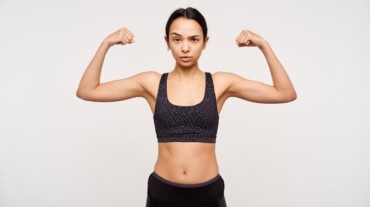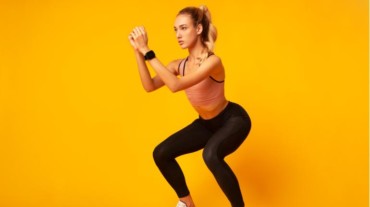Chat with ![]()

Chat with ![]()


Doesn’t the mere thought of just getting out of bed while you’re menstruating make you cringe?
Well then, get ready for some nausea because we’re here today to make a case for why you must exercise on your period. Also, get set to have your bubble about spending your period in a foetal position busted, and how!
That’s because, contrary to what you might have believed about working out on your period, the fact is that doing so can actually help you sail through those difficult five days smoothly.
So, unless you suffer from a serious health condition such as menorrhagia (characterized by an abnormally-heavy period flow), endometriosis, or have been advised to rest while you’re on your period by a doctor, there’s absolutely no reason for you to skip your workout while you’re menstruating.
In fact, several studies recommend three to five days of workout in a week and suggest indulging in a low to moderate-intensity workout during your period.
Hence, from walking, jogging, and dancing, to practicing period-friendly yoga asanas, you have a hell lot of options when it comes to choosing a period-workout regime for yourself.
Also read: Don’t let Aunty Flo get in the way of your workouts. Here’s how you can exercise on your period

Getting back to the point, here’s why exercising during periods is good for you:
1. Exercising can help relieve period pain
If you get painful periods, chances are you use it as another excuse to skip a workout during Aunt Flo’s unpleasant visit. After all, carrying out a physical activity while there’s blood flowing out of your body and excruciating stomach cramps are getting the better of you definitely seems like climbing the Everest.
But, what if we told you that contrary to what you might think, exercising can actually help relieve your period cramps.
Several studies, including one published in the British Journal of General Practice, have proven that exercise can help relieve menstrual cramps. This happens because exercising can boost blood circulation, which in turn reduces the pain. Secondly, it helps release beta-endorphins, which are your body’s natural pain killer.

Exercising also helps to burn prostaglandins (chemicals released that cause muscle contractions while you’re menstruating), further decreasing your period pain.
2. It’s the perfect antidote for mood swings
Indulging in a physical activity is scientifically proven to decrease the level of cortisol (stress hormone) in the body and boost the level of endorphins (happy hormones).
Also watch:
Thus, exercising during periods can help you manage your mood swings better and keep the agitation, crankiness, and low feelings at bay.
3. It’s just a great time to gain some strength
If you’re one of those gals, who spends hours of blood and sweat at the gym in a bid to gain some strength and increase your stamina, exercising on your period can help your cause even further.

As per a study conducted at the Umeå University, Sweden, exercising during the first two weeks of your menstrual cycle (day one, being the first day of your period) can help you gain more power and strength as the levels of female sex hormones are relatively low during this time.
4. It can help you feel energetic during your period
The low levels of the female sex hormones along with excruciating period cramps can surely leave you feeling fatigued and drowsy while you’re on your period.
However, exercising during periods can drive all the fatigue away, help you feel more energetic, and as a result, increase your productivity levels as well. Countless studies including the one conducted at the University of Georgia, have found exercise to be the perfect natural cure for fatigue and exhaustion.
“An exercise programme will enhance the blood flow carrying oxygen and nutrients to muscle tissue, improving their ability to produce more energy (the chemical adenosine triphosphate,” quotes the research.
Now that you know the benefits of exercise during periods, no more excuses! It’s time to greet Aunt Flo with a fantastic workout and sail through your period.